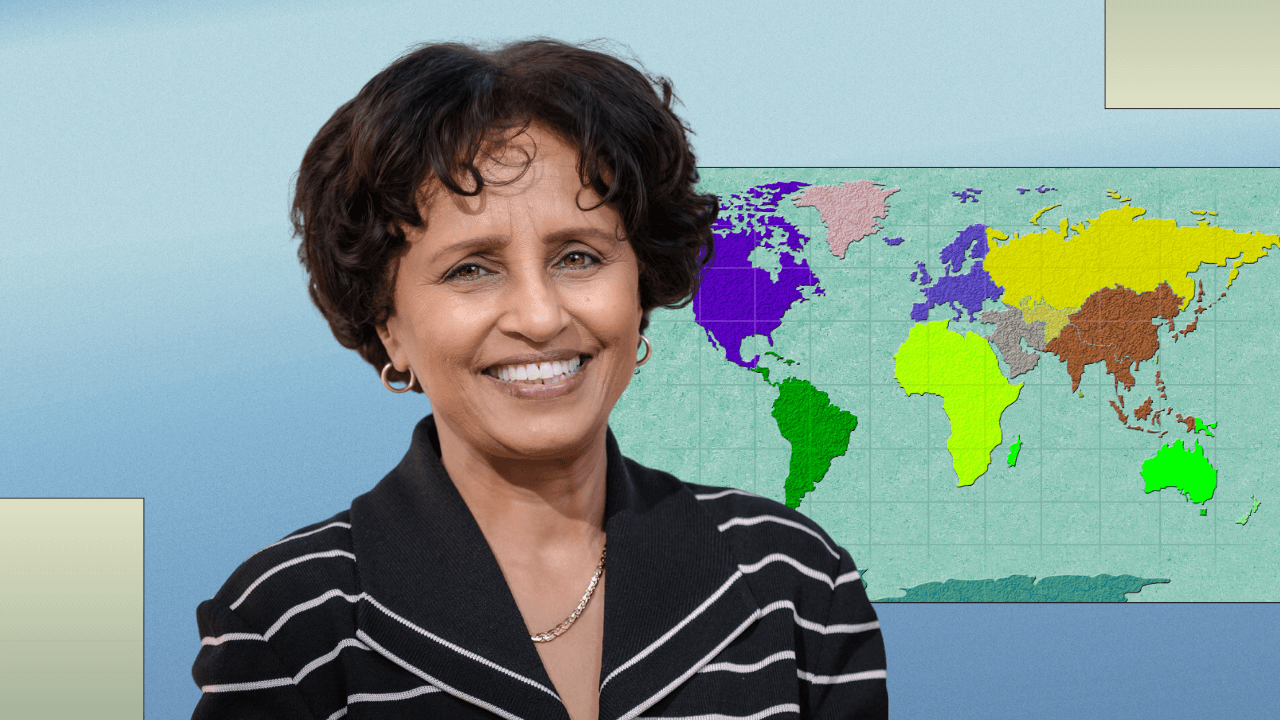Each year, members of the diaspora living outside of their home countries send billions of dollars back home – not as investors or development agencies, but as children, siblings, and community members trying to make a difference.
What’s often overlooked, however, is the true philanthropic power of remittances – and why it’s time to treat them as a transformative force rather than a private act of necessity.
In 2023, global remittances reached a record high of $818 billion dollars, and the African diaspora alone sent nearly $100 billion in remittances back to Africa. That figure dwarfs both foreign aid and investment to the sub-continent. Case in point: in 2023, Nigeria received more than ten times as much in remittances ($19 billion) as it received in foreign direct investment ($1.9 billion)
And the numbers keep growing, according to Almaz Negash, Founder and CEO of the African Diaspora Network (ADN), who cited that $12 billion is flowing to Africa from the U.S. diaspora alone. After the recent African Diaspora Investment Symposium in Washington, D.C., I had the opportunity to sit down with Negash to discuss the evolving legislative landscape, the launch of a new innovation fund, and a shared commitment to reimagining remittances as a powerful form of philanthropy.
Remittances as purposeful giving
“Remittances are the original form of philanthropy,” Negash shared. “But we haven’t claimed them as such because we’ve only seen them as support for basic needs – school fees, groceries, or rent.”
That support is undeniably essential. Most remittances directly reach rural communities, where they sustain more than 200 million family members. Yet this model, built around survival, isn’t scalable or sustainable. As Negash pointed out, it’s time for the diaspora to think beyond remittances and toward long-term economic opportunity.
That vision is already taking shape. The African Diaspora Innovation Fund, a newly launched collaboration between ADN and Myriad USA, is designed to mobilize diaspora capital in support of African-led innovation.
The fund is a bold example of how remittances can evolve into strategic investments that drive systems change.
At ADN, diaspora giving is not seen as charity, but as a powerful form of investment, solidarity, and partnership. Initiatives like AfDIF channel capital to grassroots entrepreneurs and local innovators—people with transformative ideas but limited access to resources.
The fund offers grants of up to $25,000 to African and diaspora social innovators working in education, healthcare, climate resilience, and more. With a participatory model, donors contributing $500 or more help select the finalists—ensuring the process is community-driven and rooted in shared decision-making.
This is remittance reimagined—as collective investment in a future led from within.
The problem with the status quo
There are challenges. Sending money to sub-Saharan Africa remains the most expensive globally, with transaction fees averaging between 7–9%. While remittances provide lifelines to families, there’s growing concern that, without complementary systems of support, they may unintentionally reinforce dependency and inhibit local economic resilience.
Compounding the issue is a web of bureaucratic hurdles, opaque regulatory environments, and eroding trust in financial institutions, all of which continue to stifle innovation and slow the flow of capital. As Negash put it, “We can’t build sustainable financial tools or encourage diaspora investment if the systems are built to block, rather than enable, participation.” Until regulatory frameworks shift from risk aversion to risk-sharing, the full potential of remittances as engines of development will remain untapped.
What comes next
For Negash, the call to action is clear: reframe remittances as strategic philanthropy – and build infrastructure that reflects their full potential. Governments, financial institutions, multilateral organizations, and global NGOs all have a role to play. So do diaspora leaders who are ready to invest in scalable solutions – not just cover emergencies.
But there are headwinds. Beyond high transaction fees and bureaucratic red tape, new policy threats are emerging. A recent Politico report revealed a proposal under discussion in Congress to introduce a 1 percent tax on remittances sent abroad. While proponents say the levy could generate substantial revenue, critics warn it could disproportionately burden low- and middle-income diaspora communities.
“It’s an obstacle to giving,” Negash notes, “one that directly undermines efforts to build sustainable systems of support in countries that rely on these flows.”
This tax would apply to “remittance transfers made through money transmitters, banks, or mobile apps – regardless of the sender’s immigration status or income level.” For a continent already facing inequities in cost and access, such proposals are not only regressive – they are shortsighted.
“We don’t want to just give back,” Negash said. “We want to build forward.”
So what’s the call to action?
It’s time for the African diaspora to lead boldly – by channeling remittances into creative, long-term investments like innovation funds, local endowments, and co-ownership models. Let’s shift from reactive giving to regenerative impact – and show the world what’s possible when hard-earned philanthropy is rooted in vision, equity, and community.




